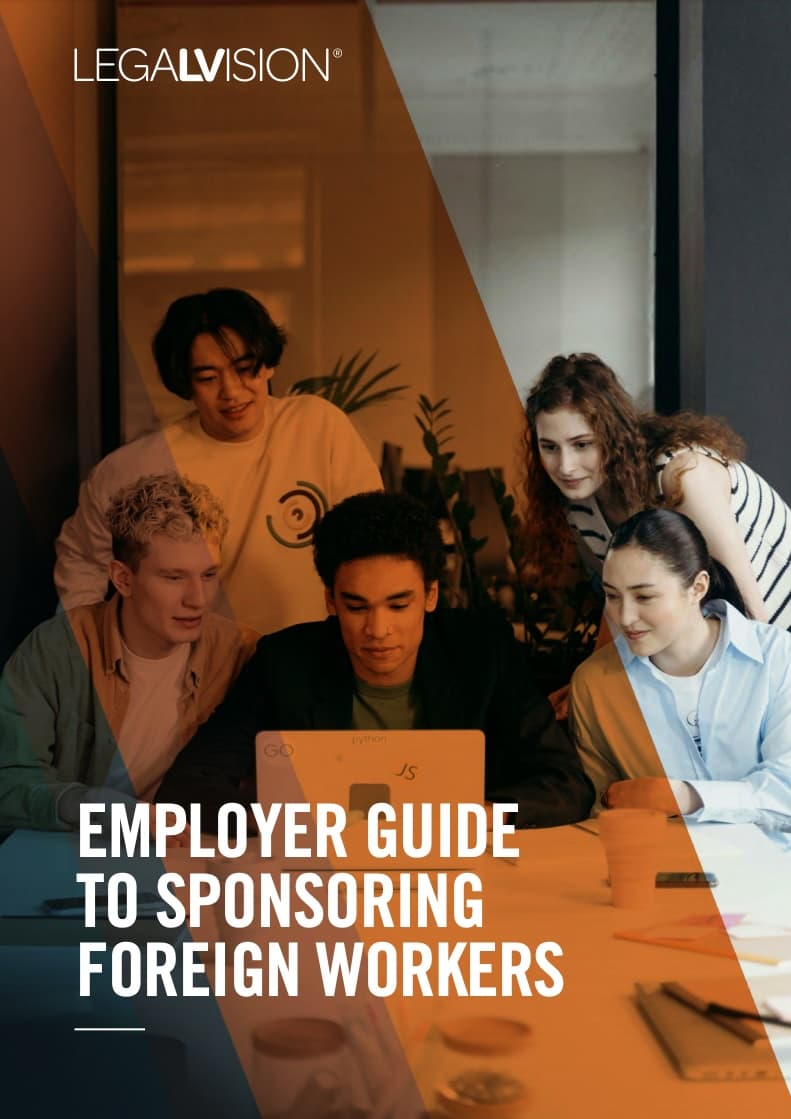In Short
-
Visa Application Charges (VAC) for all visas will increase from 1 July 2024.
-
The Temporary Skilled Migration Income Threshold (TSMIT) will rise to $73,150, affecting employer-sponsored visas.
-
Significant changes will impact student and Temporary Graduate visas, including fee hikes and eligibility restrictions.
Tips for Businesses
Stay informed about upcoming changes to Australia’s migration policies effective from 1 July 2024. Review your current visa sponsorship arrangements to ensure compliance with the new TSMIT and Fair Work High Income Thresholds. For international student recruitment, be aware of increased visa fees and stricter eligibility criteria. Consult with migration experts to navigate these changes effectively.
Australia will implement significant changes to its immigration policies starting 1 July 2024. The new migration program aims to address key issues such as:
- labour shortages in critical sectors;
- population management; and
- strengthening the economy.
The anticipated changes include adjustments to:
- employer sponsored and skilled visa categories; and
- potential changes to family and humanitarian streams.
These changes show the government is committed to attracting top global talent. They also aim to meet workforce demands and maintain sustainable population growth across the nation. As the implementation date approaches, businesses, along with prospective migrants and advocacy groups, are eagerly awaiting further details. This article will break down what changes to expect in Australian migration from 1 July 2024.
Fee Increase
From 1 July 2024, Visa Application Charges (VAC) for all visas will increase. However, the updated VAC has not yet been announced. The application fee for review in the Administrative Appeals Tribunal (AAT) will increase to $3,496 (from $3,374). The filing fee for applications with the Federal Circuit Court for a migration decision will increase to $3,920 (from $3,785).
Employer Sponsored Visas
| Changes and Details | Effective from 1 July 2024 |
| Temporary Skilled Migration Income Threshold (TSMIT) | Rising to $73,150 (from $70,000). Nominations after 1 July 2024 must meet new salary requirement. |
| Fair Work High Income Threshold (FWHIT) | Increasing to $175,000 (from $167,500). |
| Sponsored Workers (457, 482, 494 visas) | Sponsored workers will have up to 180 days (from 60 days) to find a new sponsoring employer if their employment ends. They can work in any capacity during this period without visa implications. Maximum of 365 days across visa grant period. |
| Legacy 457 Workers | Legacy 457 workers are those who held a visa on or after 18 April 2017 and were in Australia for 12+ months between 1 Feb 2020 and 14 Dec 2021. If you apply on/before 30 June 2024, there are no age criteria for subclass 186 ENS; the age exemption ends on 1 July 2024. |
| Migration Amendment (Infringement Notices) Regulations 2024 | Commencing 1 July 2024, this amendment aims to strengthen employer compliance. It imposes stricter sanctions and penalties for non-compliance and breaches. |
Call 1300 544 755 for urgent assistance.
Otherwise, complete this form, and we will contact you within one business day.
Students
Applying for a subsequent student visa will be challenging for some cohorts post-1 July 2024.
As part of the Australian Government’s Migration Strategy to “prevent visa hopping,” holders of certain temporary visas will be prohibited from applying for a student visa while onshore in Australia. This includes:
- Temporary Graduate (485);
- Visitor (600, 601, 602, 651); and
- Maritime Crew (988) visa holders, in addition to some existing visa subclasses already restricted.
The changes aim to uphold integrity in the international education system by ensuring that student visas are granted solely to genuine offshore applicants who intend to study. Temporary graduates must either leave Australia or pursue skilled work pathways instead of trying to extend their stay through the student visa program. We will continue to accept offshore student visa applications from those who meet the criteria.
Temporary Graduates
Subclass 476
This visa will close to new applications from 1 July 2024.
Subclass 485
The following changes will take effect from 1 July 2024:
Working Holiday Visas (WHV)
Philippines Citizens
Citizens of the Philippines will be able to apply for a Working Holiday Visa (WHV) subclass 462 from 1 July 2024. The arrangement will allow up to 200 young Filipinos (aged between 18-30 years) to stay in Australia for 12 months and engage in short-term work or study. Applicants must have a tertiary qualification or successfully completed at least two years of undergraduate study or post-secondary education. Applicants can apply for a second or third WHV, provided they satisfy the specified work requirements.
UK Citizens
From 1 July 2024, UK citizens will be eligible for a second or third WHV (subclass 417) without needing to satisfy the specified work requirement. This is especially beneficial to applicants who previously held a WHV and could not apply for a second WHV due to the incompletion of specified work. From the new fiscal year, they can resume their short-term work or study in Australia.
Business Visas
Subclass 188 in all streams will close to new applications from 1 July 2024. Any pending applications will be given an opportunity to withdraw and seek a refund of the government fees. Transitional pathways to permanent residence (via subclass 888) for the current 188 visa holders will be implemented.
The change is part of the Australian Government’s initiative to reform the Business Innovation and Investor Visa Program and propose a new iteration of the program in amalgamation with the Global Talent Visa Scheme.
Family Migration
Partner Visas
The relevant amendments take effect from 1 July 2024 and apply to Prospective Marriage Visas (subclass 309) and Partner visas (subclass 820/801 and 300/100). The changes address the evolving dynamics and circumstances in family relationships and attempt to preserve the applicant’s pathway where the relationship has ceased due to family violence or the death of the sponsor.

Sponsoring overseas workers as an Australian business is complicated. Let us simplify it for you with this free employer guide.
Key Takeaways
The comprehensive changes to Australia’s migration system, which take effect from 1 July 2024, demonstrate the government’s commitment to fortifying economic prosperity while upholding national values. The overhaul aims to attract top global talent across critical sectors while managing population levels sustainably by recalibrating visa pathways, revising points allocations, and curbing certain visa routes.
Though change inevitably breeds uncertainty, the updates underscore Australia’s adaptability in the ever-evolving migration landscape. As details unfold, businesses, prospective migrants, and the broader community must stay informed to navigate the new terrain adeptly. With meticulous implementation and a people-centric approach, this watershed moment could cement Australia’s reputation as a nation that thoughtfully wields migration for its long-term advantage.
If you need help understanding the changes in Australian migration, our experienced corporate immigration lawyers can assist as part of our LegalVision membership. For a low monthly fee, you will have unlimited access to lawyers to answer your questions and draft and review your documents. Call us today on 1300 544 755 or visit our membership page.
Frequently Asked Questions
From 1 July 2024, visa application charges (VAC) will increase for all visa types. Businesses that sponsor foreign workers will need to budget for higher application fees, which may impact the cost of hiring skilled international talent.
The TSMIT will rise to $73,150 from 1 July 2024. Employers sponsoring skilled workers on temporary visas will need to ensure that their salary offerings meet or exceed this threshold to comply with visa requirements.
We appreciate your feedback – your submission has been successfully received.












